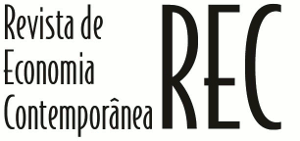This study examined the distributional aspects related to the principal tax on consumption of Brazil, the ICMS, taking the state of Rio de Janeiro as a focus for study. Based on information from individual data on Household Budget Surveys of 2002-2003 and 2008-2009, it was possible to calculate the tax burden of the ICMS by groups of households and to make distributional analysis of tax in the state, by the calculation of Kakwani and Reynolds-Smolensky indices for the two periods. It confirmed the fact that the ICMS on the State of Rio de Janeiro is very regressive with high burden for the low-income families (10.91% of total income) and relatively low for the highest income (3.66% of total income). There was no great difference between the burden of the tax in the period 2002/2003 and 2008/2009, but there has been improvement in income distribution and lower concentration of GST fluminense. As a result, the effects on the regressivity of the tax were ambiguous, with improved index Kakwani index and worsening of the Reynolds-Smolensky.
Regressivity; indexes; ICMS; tax administration













